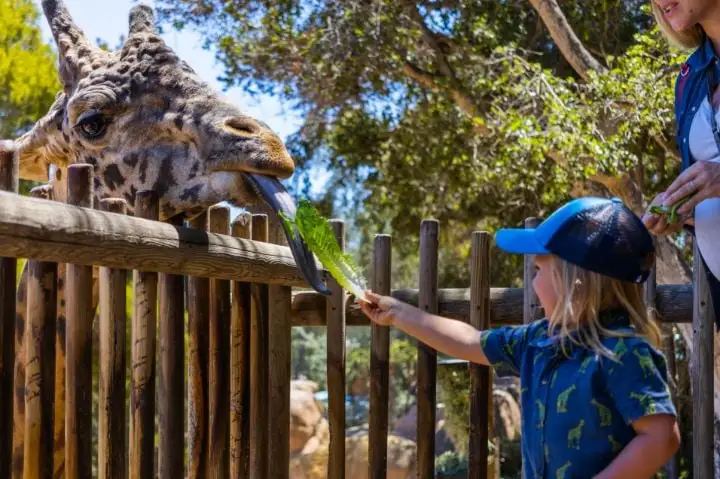You love being a grandparent. You really do. But somewhere between buying unicorn-themed cereal and funding your grandkid’s “emergency” karate lessons, your bank account started gasping for air. One minute, you’re helping with a school project. The next, you’re accidentally underwriting their childhood like a part-time CFO with no vacation days.
It’s not their fault—they don’t mean to wreck your budget. But let’s face it: those tiny tornadoes of joy come with some serious hidden costs. If you’ve ever opened your wallet and thought, “Wait, why am I paying for Roblox?”—this list is for you. Let’s break down the hilarious (and slightly painful) ways your grandkids are unknowingly draining your retirement one adorable ask at a time.
1. The “Just One More Toy” Trap

It starts innocently enough. You’re at the store, and your grandchild spots a toy with those big, pleading eyes. “Just one more, Grandma!” Before you know it, your cart is overflowing with the latest gadgets and gizmos.
Research by AARP shows that grandparents spend an average of $2,562 annually on their grandchildren. That’s a lot of “just one more” toys! While it’s natural to want to spoil them, these expenses can add up quickly, especially when they’re not part of your planned budget. And let’s be honest—once you buy it, they usually forget about it five minutes later.
What’s worse is when you start competing with other grandparents—suddenly it’s a toy Cold War. You don’t need to prove your love through plushies and Paw Patrol. Your time and attention are the real gold. Try giving them an experience instead—less clutter, same sparkle in their eyes.
2. The Extravagant Birthday Bash

Gone are the days of simple backyard birthday parties. Now, it’s all about themed events, entertainers, and elaborate decorations. And guess who’s often footing the bill? Yep, the generous grandparents.
A study by The Senior List found that 96% of grandparents provide some form of financial support to their grandchildren, with many contributing to special occasions like birthdays. While creating memorable experiences is priceless, the costs can sneak up on you if you’re not careful. One bounce house and a unicorn cake later, you’re wondering why you didn’t just throw a pizza party.
And let’s not forget the goody bags—those things are practically Oscar gift baskets now. Kids barely remember the magician, but your Visa card will remember that swipe forever. You don’t have to say yes to every Pinterest-inspired idea. Sometimes love looks like a homemade cake and a backyard sprinkler.
3. The Endless Tech Upgrades

Every year, there’s a new must-have gadget. Whether it’s the latest smartphone, tablet, or gaming console, keeping up with technology can be a costly endeavor—especially when your grandkids expect you to join in on the fun.
The Bump reports that grandparents collectively spend $179 billion per year on their grandchildren, with a significant portion going towards gifts and gadgets. While staying connected is important, it’s essential to set boundaries to protect your budget. Because let’s face it, you buying the new iPhone so they can FaceTime you twice a month is not exactly a power move.
You don’t need to own the latest VR headset to be a cool grandparent. In fact, your old-school charm is already iconic. Encourage them to teach you tech—they’ll love being the expert, and you’ll dodge the credit card bill. Win-win.
4. The Surprise Visit Expenses

Unplanned visits from your grandkids are heartwarming, but they can also lead to unexpected expenses. Extra groceries, outings, and activities can quickly add up, especially if these visits become frequent.
According to a survey by Parents, 63% of grandparents make monetary sacrifices for their grandkids’ happiness, with some even delaying retirement to continue their support. While family time is invaluable, it’s crucial to plan for these surprise visits financially. Because nothing says “budget buster” like a last-minute zoo trip, movie night, and lunch at the “special” pancake place.
And let’s not even start on the snacks—kids can eat like it’s a competitive sport. Suddenly, your fridge is emptier than your patience. Setting up a “visit budget” might feel silly, but it could save you from grocery store regret. Loving them doesn’t mean going broke for them.
5. The College Fund Commitment

Contributing to your grandchild’s education is a noble gesture, but it’s essential to ensure it doesn’t compromise your financial stability. College costs are rising, and without proper planning, your generous contributions could strain your budget.
Recent studies highlight that many grandparents set up a college fund for their grandchild, only for the parents to consider redirecting it for other expenses. This underscores the importance of clear communication and setting firm boundaries when it comes to financial gifts. Because nothing says “ouch” like watching your savings get rerouted to a destination wedding in Cabo.
Make sure you’re legally protecting the purpose of your gift. You can set up a 529 plan with strict terms—no cake-cutting allowances allowed. And hey, if you need those funds for medical bills or living expenses, that’s okay too. College is important, but so is you being able to afford your own groceries at 85.
6. The Neverending Snack Requests

You invite them over for a sweet little sleepover—and somehow it turns into a full-blown catering event. Suddenly your pantry looks like a birthday party exploded: fruit snacks, pizza rolls, rainbow cereal, juice boxes with cartoon faces, and ice cream in four flavors. You don’t even eat dairy anymore. How did this happen?
The kid eats like a raccoon on spring break, and you just keep tossing things in the cart like it’s all totally normal. “Well, it’s just this once,” you whisper, ignoring the three similar receipts in your purse from the last month. Then there’s breakfast. And lunch. And a post-nap snack. You’re basically running a bed-and-breakfast with a toy aisle in the lobby.
Next time, maybe skip the grocery aisle and make it a popcorn-and-pancakes night. Nostalgia’s cheaper—and still delicious.
7. The Streaming Subscription Costs

You signed up for Disney+ “just for the grandkids,” but somehow you now have subscriptions to Netflix, Hulu, Paramount+, and that random British mystery service no one’s heard of. One login turned into seven, and now your email is a sea of monthly renewal notices. “Free trial” has become code for “eternal expense.”
They watch one movie and then immediately forget it, but the charges? They remember. Every. Single. Month. And don’t even try to cancel one—they’ll instantly recall it’s the only place they can watch Encanto. Welcome to the subscription trap: easy to enter, hard to escape.
If you really want to keep costs in check, rotate your services instead of hoarding them like digital beanie babies. And yes, you can still be the cool grandparent without footing the bill for every kid’s favorite show.
8. The Hobbies You Can’t Say No To

Your grandkid wants to “learn guitar,” so you buy them a starter kit. Three weeks later, the guitar is gathering dust next to the yoga mat they borrowed from you. Then comes painting. Then soccer. Then robotics club. You’re out $500 and they’ve already moved on to TikTok dances.
Their attention spans are about as short as their pant legs. And while supporting their interests is a beautiful thing, it can also turn into a revolving door of hobby-related receipts. Every new phase becomes a minor investment—art supplies, sports uniforms, chess sets, you name it.
Next time they come to you with a new passion, consider renting or borrowing before buying. Enthusiasm is priceless. But your retirement fund? Not so much.
9. The Financial “Emergency” Requests

It always starts with a text or a call: “Hey, Grandma… quick question.” And you already know what’s coming—an “unexpected” school fee, a uniform, a busted laptop, or some other urgent expense. You’re suddenly the emergency fund with a heartbeat.
Of course, you help—because you love them, and you don’t want them to struggle. But when these mini-financial fires keep popping up, they can burn through your savings faster than you realize. And it’s not just the money—it’s the stress of being everyone’s safety net.
It’s okay to say, “Let me think about it,” or ask what other solutions they’ve tried. You’re generous, not a genie. And teaching them resourcefulness? That’s a gift that pays interest.
10. The Fashion Updates

Every kid hits that age where their clothes need to be “cool.” And somehow, “cool” always means expensive. Suddenly, you’re out here Googling what Lululemon is and wondering why a sweatshirt costs more than your monthly utility bill.
They promise they’ll wear it every day (they won’t). You justify it because “they’re growing so fast” (they are, but still). The next thing you know, you’re budgeting for sneakers like they’re collectible art. And it doesn’t stop with clothes—accessories, bags, headphones… it’s a runway show on your dime.
Try setting a spending limit and sticking to it, even if it means saying “no” to the trend of the week. Confidence is stylish at any price point—and you’re not a personal stylist with an unlimited budget.
11. The Travel Tag-Along

You planned a relaxing cruise or a quiet trip to the mountains, and then someone dropped the idea that it would be so fun if the grandkids came too. Now it’s not just a vacation. It’s a logistical operation involving extra flights, adjoining rooms, and a suitcase full of snacks, games, and Goldfish crackers.
Instead of sipping wine in peace, you’re refereeing arguments over screen time and trying to find restaurants that serve plain pasta. It’s not a getaway—it’s an expedition. And it’s definitely not cheap.
Vacations with grandkids can be beautiful memories, but they should never bankrupt you in the process. Be honest about what you can afford, and if needed, plan a separate “kid trip” and “me trip.” You deserve both.
12. The Never Ending Sleepovers

The first time they stay for a few days, it’s all sunshine and bedtime stories. But over time, that “few days” becomes “just until school starts” and then “actually, through the holidays” and suddenly you’re hosting a long-term house guest with snack preferences and streaming demands.
And guess who’s paying for the utilities, extra laundry, toothpaste, and milk that somehow evaporates every 48 hours? You. It’s like you got promoted to full-time caregiver without the salary or benefits.
Of course, it’s a privilege to be close and involved—but it’s also okay to acknowledge when it’s financially draining. Set clear boundaries, gently. Love is not measured in how many nights someone crashes on your couch. It’s measured in connection—and you can have that without going broke.
This article is for informational purposes only and should not be construed as financial advice. Consult a financial professional before making investment or other financial decisions. The author and publisher make no warranties of any kind.








